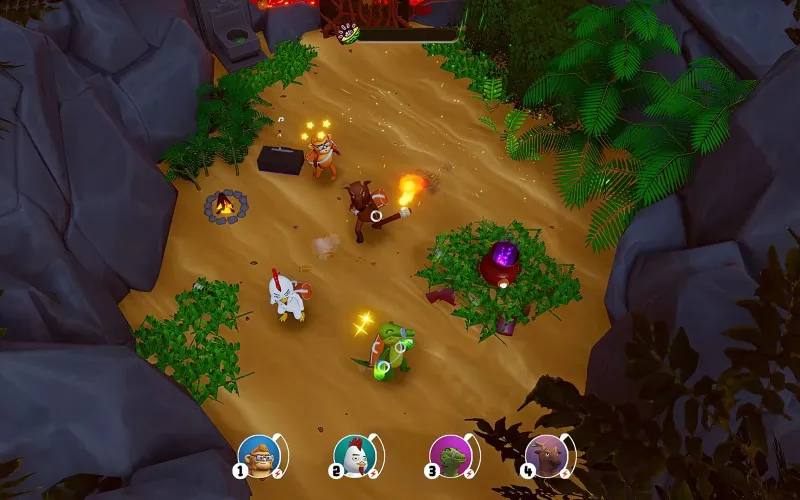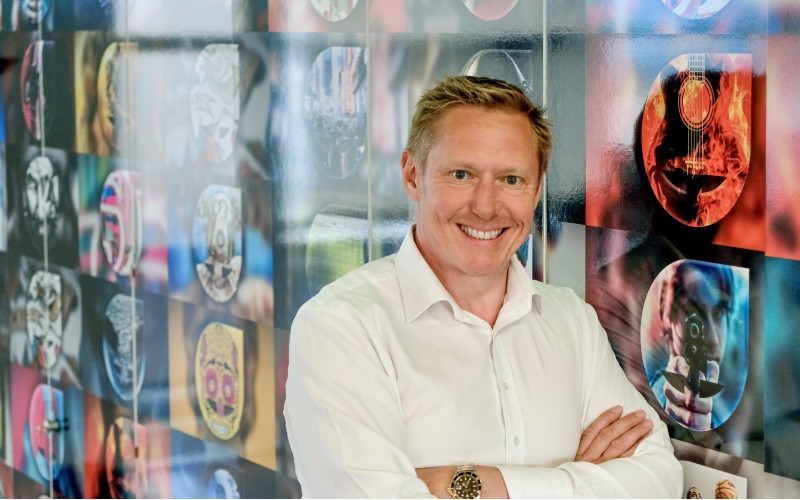The UK games industry is a major success story and in 2023 was worth almost £8 billion.
However, the global games industry has seen 35,000 jobs lost in the last two years, according to Paul Sulyok, founder and CEO of Green Man Gaming.
“The gaming industry has indeed been facing an economic winter,” he tells BusinessCloud. “It is such an important part of our economy in the UK, ranked as Europe’s biggest games market – but it is lacking support.
“We’ve got so much talent here in the UK, and the government needs to take decisive action to prevent a drain of that talent – and the capital to support the next wave of gaming businesses.”
Sulyok says the reduction of Entrepreneur’s Tax Relief and tax-efficient breaks for investors had a negative impact. “I urge the government to rethink these steps, and also fully recognise the strategic importance of the gaming industry,” he adds.
“There needs to be a stable economic environment and political will to nurture a homegrown industry that continues to punch well above its weight.”
London-based GMG is a leading digital game retailer who has partnered with the likes of Sony, Warner Brothers, Activision and EA, selling over 10,000 games across 195 countries.
It covers the entire gaming spectrum – developing, publishing, marketing, and sales – and has invested in 35 games globally.
“Luckily, we have been fortunate enough to weather the storm,” says Sulyok of his business. “In 2022, while many companies were leveraging debt to ride the pandemic’s wave, we chose a more measured and conservative approach.
“By avoiding over-leverage and making difficult budgetary cuts, we focused on driving cash flow and building financial resilience.
“This strategy positioned us to endure the current volatility, meaning we could protect our margins, and ensure financial stability.
“I also think our digital-first approach and now fully remote workforce has worked in our favour. While others have struggled with supply chains or physical retail, we’ve been able to double down on innovation and focus on what we do best – delivering digital content to gamers.”
One high street chain facing issues is GAME, owned by Mike Ashley’s Frasers Group since 2019. In recent months the retailer has reportedly struggled to fulfil online pre-orders for key releases such as Call of Duty: Black Ops 6 and also shipped copies late.
Sulyok, speaking more generally, says that while his business may not rival the ‘giants’ in terms of sheer size, it “continues to carve out a niche in a highly competitive market by offering competitive pricing, a diverse and excellently curated game catalogue, and support for independent developers”.
“This sets us apart,” he explains. “We have always been strong believers in the power of data and the importance of understanding our customers. That is what is at the heart of what we do – connecting gamers to the games they love, no matter where they are in the world… and supporting the community at each level of the gaming ecosystem.
“We aren’t just about selling games; but helping to empower the creators behind them.”
A former British Army Captain, Sulyok initially ventured into the banking world “but it didn’t quite feel like the right fit”.
“The turning point in my career happened during my time at the global consultancy Capco in Tokyo, where I discovered my passion for managing teams, and selling. I had the opportunity to run a P&L, learning about entrepreneurship while with a large consultancy, which was invaluable in setting the stage for the next chapter,” he says.
“I’ve always been drawn to industries that blend technology with creativity, and the gaming sector is the perfect fusion. I am fascinated by tech advancements and the immersive, storytelling elements of video gaming.”
He founded Green Man Gaming in 2009 and officially launched in 2010 but says the defining moment came with the acquisition of Playfire in 2012.
“This move transformed our company from a digital storefront into a community-focused platform,” he explains. “Suddenly, we weren’t just selling games: we were connecting gamers worldwide and celebrating their achievements. This is an extremely active community, and a very rewarding space to operate and connect in, which also makes our job a lot of fun.”
Another significant moment came in 2014 with the launch of its publishing arm. “This allowed us to directly support emerging and established developers by providing marketing and distribution expertise, helping them reach a broader audience,” says Sulyok.
With partnerships that include over 1,250 publishers and a range of studios globally, are there any collaborations that are particularly exciting for Sulyok right now?
“The industry is full of momentum as we see some of the most anticipated game releases of the current generation,” he answers. “One of the biggest standouts, without question, is GTA 6. Already making huge waves, its announcement trailer is sitting at 220 million views on YouTube.
“Partnering with publishers to bring blockbuster franchises to our platform is always exciting. These high-profile launches attract global attention and offer us the chance to engage with an even wider audience.
“[But] we are passionate about supporting the entire spectrum, and we excel at it all. We collaborate with major AAA publishers to bring gamers the latest blockbusters, but we are equally committed and extremely proud to be nurturing indie developers by providing them with the support they need to succeed.

“Independent games are where you find creativity and personal expression at its finest. These are often developed by small teams, with the freedom to experiment with unique concepts and storytelling that you might not see in mainstream titles.
“Indie developers don’t have the same constraints as AAA studios, so they can take risks and push the boundaries of what gaming can be.”
An earlier version of this article incorrectly claimed that 35,000 jobs had been lost in the UK games industry – rather than globally – that Entrepreneur’s Tax Relief had been removed rather than reduced and GMG had invested in 150 studios.
Manchester ASCEND cohort taps into ‘power of the group’ at Web Summit


